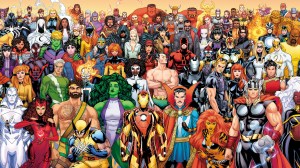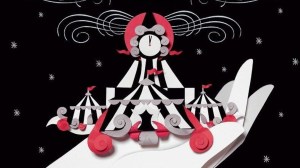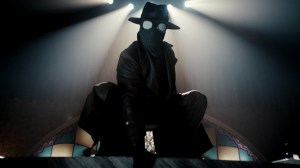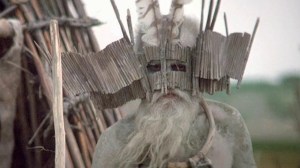Johnny Depp holds a unique position in Hollywood, a versatile performer recognized globally for headlining some of the biggest movie franchises ever produced. From the swashbuckling eccentricities of Captain Jack Sparrow in the multi-billion-dollar Pirates of the Caribbean saga to his roles in Tim Burton’s gothic fantasies and the Fantastic Beasts prequels, Depp became synonymous with memorable, often quirky characters that dominated the box office. However, despite his decades-long career and undeniable star power Depp has conspicuously avoided the spandex-clad world of mainstream superhero cinema. Yet, buried within his extensive filmography lies a single, often overlooked credit that technically makes him a comic book movie star, just not in the way most fans would expect.
Videos by ComicBook.com
Depp’s singular comic book movie is 2001’s From Hell, directed by the Hughes Brothers (Albert and Allen Hughes). Transporting viewers to the fog-laden, gaslit streets of London’s Whitechapel district in 1888, the movie explores the chilling real-life mystery of the Jack the Ripper murders. In From Hell, Depp stars as Inspector Frederick Abberline, a brilliant but troubled Scotland Yard detective tasked with hunting down the elusive serial killer. Abberline is portrayed as an opium addict whose drug use seems to grant him psychic flashes, offering fragmented visions of the Ripper’s brutal crimes. From Hell takes its name and core concept from a sprawling graphic novel by Alan Moore and Eddie Campbell, marking it as Depp’s lone foray into the world of comic book adaptations.
What Is From Hell, Johnny Depp’s Only Comic Book Movie?

From Hell presents a fictionalized account of the infamous Jack the Ripper killings, imagining they are connected to a conspiracy reaching into the highest echelons of British society. The victims are a group of desperate sex workers, including Mary Kelly (Heather Graham), with whom Abberline develops a romantic connection as the investigation deepens. His investigation points towards an educated killer with surgical knowledge, leading him to consult Sir William Gull (Ian Holm), a respected physician to the Royal Family. As Abberline delves further, he uncovers threads linking the murders to the Freemasons and a potential cover-up involving the monarchy itself, specifically concerning an illegitimate child fathered by Prince Albert Victor.
[RELATED: Tim Burton “Sure” He’ll Work With Johnny Depp Again (But Not on a Sequel)]
The Hughes Brothers crafted a visually distinct film with From Hell, steeping it in Gothic atmosphere with stylized cinematography capturing the oppressive gloom of Victorian London. Released in October 2001, From Hell performed respectably at the box office, grossing approximately $74.5 million worldwide against a reported budget of $35 million. Critical reception, however, was mixed. While some praised the film’s visual style, atmospheric tension, and Depp’s performance, others criticized its deviations from the source material, its convoluted plot, and a perceived lack of depth compared to the graphic novel. Heather Graham’s portrayal of Mary Kelly, including her accent, also drew some negative attention. Despite the mixed reviews, From Hell has endured as a cult favorite for fans of dark period thrillers and stands as a notable, albeit atypical, entry in the comic book adaptation subgenre.
How Does the From Hell Movie Compare to the Comic?
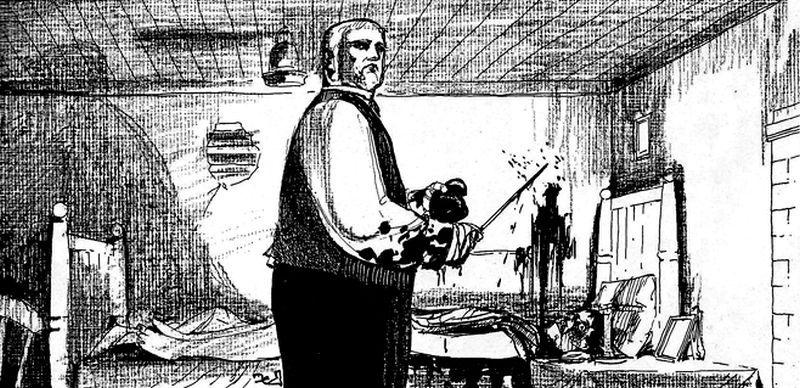
Adapting Alan Moore and Eddie Campbell’s From Hell graphic novel was always going to be a monumental task. First published in serialized form starting in 1989 and collected into a massive volume of nearly 600 pages, the comic is widely regarded as a masterpiece of the medium. From Hell is an incredibly dense, meticulously researched, and thematically complex work that uses the Ripper murders as a lens to explore Victorian society, misogyny, class structure, Masonic conspiracies, London’s psychogeography, and even the nature of time itself. The comic’s narrative, heavily annotated with detailed endnotes separating fact from informed speculation, presents Sir William Gull not just as the killer, but as the book’s central figure, a man driven by occult beliefs and a desire to assert patriarchal power through ritualistic violence.
The 2001 film, by necessity, significantly streamlines and alters Moore and Campbell’s sprawling narrative. The most crucial change is shifting the focus from Gull to Inspector Abberline, transforming the story into a more conventional whodunit centered on Depp’s character. The movie also invents Abberline’s opium addiction and psychic abilities, elements absent from the graphic novel, where Abberline is a more conventional policeman and the psychic element comes from a separate character presented as a fraud.
The complex Masonic and historical conspiracies detailed by Moore are simplified in the From Hell movie, and the graphic novel’s deep dive into esoteric symbolism and London’s occult history is largely excised. Furthermore, the romantic subplot between Abberline and Mary Kelly is a cinematic invention, absent from the source material, which focuses more on the solidarity and grim reality of the sex workers’ lives. So, while the movie captures some of the source’s gloomy atmosphere, it ultimately tells a very different, far less ambitious story, prioritizing a solvable mystery over the graphic novel’s historical accuracy and philosophical ambitions.
Have you ever seen From Hell? Did you know it’s Johnny Depp’s only comic book movie? Let us know what you think of the film in the comments!



